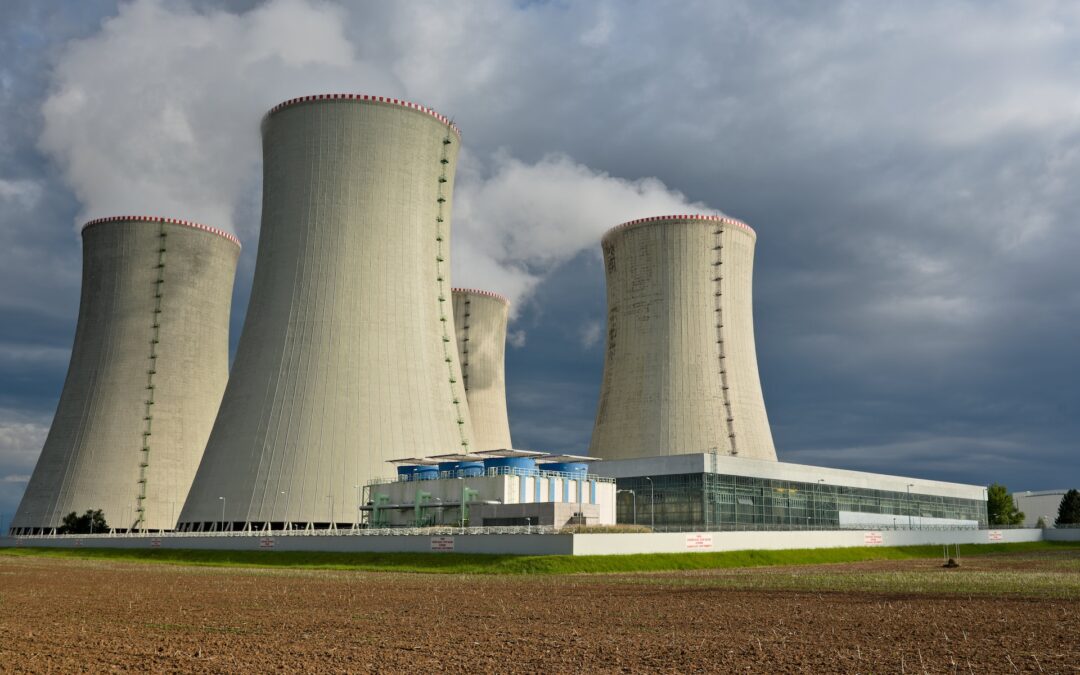- The closure of nuclear power plants in Germany has significant and wide-ranging economic and social impacts.
- The closure of nuclear power plants can lead to benefits such as shifting to renewable energy sources, energy efficiency measures, and nuclear waste safety.
- Downlead clamp reduce the risk of damage or disconnection. It consists of a sturdy metal bracket that mounts to the structure.
Germany has been at the forefront of the energy transition from nuclear to green in Europe. The country’s decision to close down nuclear power plants has both benefits and costs that must be carefully considered. This article explores the implications of the closure of nuclear power plants on energy security, environmental goals, and the economy.
TTF is a manufacturer of downlead clamp used on electrical and telecommunication systems. The clamps secure and support cable or conductor hardware that run down a structure, preventing excessive stresses on the cables caused by their own weight or external forces like wind. They reduce the risk of damage or disconnection. It consists of a sturdy metal bracket that mounts to the structure.
The Closure of Nuclear Power Plants in Germany
The closure of nuclear power plants in Germany comes after the country’s decision to wean itself off fossil fuels and transition to green energy. The country has been in the development stage of nuclear energy power plants to help mitigate energy demand. However, the German government has cut short the production of nuclear energy by closing down three nuclear power plants. This comes after the Japan nuclear power plant accident after radiation seepage.
The Cost of Nuclear Power Plant Closures
The closure of nuclear power plants has significant and wide-ranging economic and social impacts. The cost of nuclear power plant closures must be taken into account when considering energy security and environmental goals. The various factors leading to the increased cost of nuclear energy include decommissioning costs, reduction in energy capacity, social and economic impacts, and energy security.
Decommissioning Costs
Decommissioning a nuclear power plant is a complex and expensive process that can take many years. The decommissioning costs vary depending on the size and complexity of the plant. Estimations of the decommissioning costs of a typical nuclear power plant can range from $300 million to $5 billion. The cost of decommissioning nuclear power plants in Germany is estimated to be around €50 billion.
Reduction in Energy Capacity
The closure of nuclear power plants can lead to a reduction in energy capacity which can be replaced by other sources of energy. The cost of replacing lost energy capacity depends on the availability and cost of alternative energy sources. Renewable energy sources like wind and solar power have become increasingly cost-competitive with fossil fuels, but they still require investment, infrastructure, and technology. The transition to green energy requires significant investment in research and development, as well as in building new infrastructure to support renewable energy sources.
Social and Economic Impacts
Nuclear power plants provide jobs for the local communities and the closure can lead to job losses and a reduction in local economic activity. The closure can also lead to a reduction in tax revenues for local governments. This reduction can also impact public services and infrastructure. However, the closure of nuclear power plants can lead to job opportunities in the renewable energy sector, and more investments in renewable energy sources can create jobs in manufacturing, installation, and maintenance. This can help boost local economies and reduce dependence on energy imports, making the country more competitive in the long run.
Energy Security
The closure of nuclear power plants can increase greenhouse gas emissions and make it more difficult to meet climate targets. The closure of nuclear power plants also leads to a reduction in energy diversity. The diversity can make a country more vulnerable to energy supply disruptions. However, the closure of nuclear power plants can also reduce the risk of nuclear accidents and focus on finding safe and sustainable ways to manage nuclear waste.
Benefits of Nuclear Power Plant Closures in Germany

The closure of nuclear power plants in Germany has been a contentious issue with concerns that it will lead to an increase in greenhouse gas emissions. However, the benefits of closing down nuclear power plants include shifting to renewable energy, energy efficiency measures, and nuclear waste safety. Renewable energy sources account for more than 40% of Germany’s electricity generation in 2020. The closure of nuclear power plants can lead to more investments in renewable energy sources like wind and solar power.
Shifting to Renewable Energy
The closure of nuclear power plants can lead to the development of renewable energy sources like wind and solar power. These sources are becoming increasingly cost-competitive with fossil fuels. Germany may continue to invest in renewable energy sources to reduce dependence on fossil fuels.
Energy Efficiency Measures
The closing down of the nuclear power plants leads to the development of energy efficiency measures. Energy efficient measures can help to reduce overall energy consumption and be cost-effective to reduce greenhouse gas emissions. More investments will lead to reduced dependence on energy imports, which can make its economy more competitive in the long run.
Nuclear Waste Safety
The nuclear power plants closure in Germany can reduce the risk of nuclear accidents and can focus on finding safe and sustainable ways to manage nuclear waste. It can also lead to more job opportunities in the renewable energy sector.
Conclusion
Germany’s energy transition from nuclear to green is a significant step towards achieving global environmental goals. The closure of nuclear power plants must be carefully considered based on the costs and benefits. Line construction hardware, such as cable racking, clevis, and messenger hanger, plays a crucial role in the installation of overhead conductor wires. As the world continues to shift towards renewable energy sources, it is important to consider the implications of closing nuclear power plants on energy security, environmental goals, and the economy. While the closure of nuclear power plants comes with its own set of challenges, it is a necessary step towards a cleaner and more sustainable future.
The closure of nuclear power plants will lead to a reduction in energy capacity, but this can be replaced by other sources of energy.
The closure of nuclear power plants will have a significant economic impact, including decommissioning costs, job losses, reduction in local economic activity, and a reduction in tax revenues for local governments.
Understand the basic components, installation as well as the application of the downlead clamp,and also find the best manufacture to fulfill your power and utility needs.


